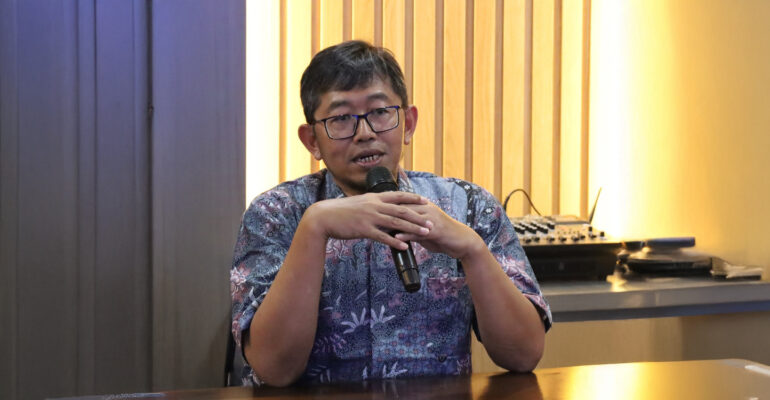IPB University Professor Designs Transdisciplinary Method for Sustainable Capture Fisheries Development

A professor from the Faculty of Fisheries and Marine Science (FPIK) at IPB University, Prof Sugeng Hari Wisudo, has developed a transdisciplinary method for sustainable and equitable capture fisheries development.
“Capture fisheries development cannot stand alone; it is influenced by many sectors, including agriculture and mining, which affect water ecosystems. Therefore, fisheries issues cannot be resolved within a single sector,” he stated during a press conference ahead of the IPB University Professorial Scientific Oration on Thursday (6/2).
He explained that the design of a sustainable and equitable capture fisheries system integrates various methodological approaches to address complex governance challenges.
The system framework utilizes Hard System Methodology (HSM) to produce a dynamic and adaptive model that supports sustainable capture fisheries management.
Meanwhile, he continued, Soft System Methodology (SSM) can be applied to address social issues and multi-stakeholder conflicts. This approach generates a model that responds to social, economic, and ecological challenges.
“The combination of these two approaches allows for the development of a capture fisheries model adaptable to various regions by analyzing the integration of policies based on complex socio-economic ecosystems,” he elaborated.
Prof Sugeng emphasized that the concept of a sustainable and equitable capture fisheries system requires a comprehensive approach. This is essential to address critical challenges such as fisher poverty, overexploitation, and marine ecosystem degradation.
“A transdisciplinary approach serves as a crucial foundation for realizing this system by involving cross-disciplinary and cross-sectoral collaboration to achieve inclusive, adaptive, and sustainable management,” he explained.
In addition to successfully designing a macro-level policy and governance model for sustainable and equitable capture fisheries using HSM and SSM, the system approach can also be applied on a micro scale.
This is achieved through innovative technological engineering specifically designed for small-scale capture fisheries. “The systems approach provides strategic solutions for managing the complexities of capture fisheries,” added Prof Sugeng.
His research consistently demonstrates that a systems approach, through the development of transdisciplinary methodologies (integrating multiple disciplines and cross-sector collaboration), is key to addressing the complexities of the capture fisheries sector from upstream to downstream. (dh) (IAAS/RUM)



